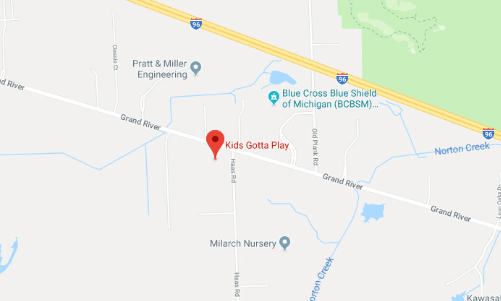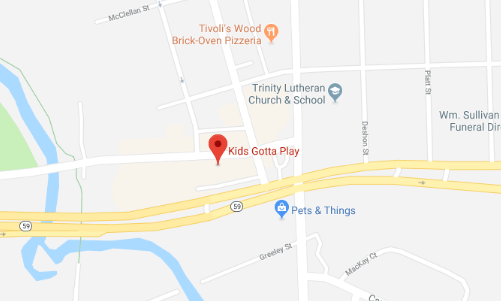 Every child deserves to have fun. Whether that’s achieved by playing with friends in the backyard, bonding with family for a game night, or coloring in their room, play can happen anywhere. Regular playtime is not just a way for children to experience joy, but also comes with a host of health benefits. Play is essential for promoting child development and emotional well-being. Children also learn valuable skills through play, which benefit them as they grow up and they can take with them into adulthood. The beneficial link between playtime and health can't be underestimated.
Every child deserves to have fun. Whether that’s achieved by playing with friends in the backyard, bonding with family for a game night, or coloring in their room, play can happen anywhere. Regular playtime is not just a way for children to experience joy, but also comes with a host of health benefits. Play is essential for promoting child development and emotional well-being. Children also learn valuable skills through play, which benefit them as they grow up and they can take with them into adulthood. The beneficial link between playtime and health can't be underestimated.
The Positive Impact of Regular Play
Regular playtime is crucial for children and their development. It has a positive effect on children in numerous ways, helping them to develop key skills, promoting physical fitness, and encouraging creativity, among other added benefits.
Play is important for children because it helps them to develop their cognitive, physical, social, and emotional well-being. Of course, play is also a lot of fun for children. Through play, children will develop their confidence and self-esteem, become more resilient and independent, improve their social skills, and become curious and creative.
The Health Benefits of Playtime
There is plenty of scientific evidence backing up the notion that regular playtime is important and beneficial for children of all ages. Different types of play can help children to develop different skills and provide them with various interaction and coping methods that will assist them later in life.
A recent study found that playing with dolls and action figures helps children to develop social processing skills, such as empathy. When kids play with these kinds of toys, they use more language surrounding empathy and emotions, and neuroimages revealed that the brain activation that develops empathy is evidenced.
Play is an important opportunity for parents to bond with their children, as well. It allows parents to fully engage with their children to create healthy relationships, teach key skills, and model good behavior. If you’re looking to gain a better understanding of how beneficial involving yourself in your child’s playtime is, check out our previous blog post.
Active Playtime
Active play promotes physical fitness in children and can have positive health effects throughout their lives. Physical activity helps improve confidence and self-esteem and develops healthier social, cognitive, and emotional skills—not to mention builds strength, concentration, and coordination.
Physical fitness doesn’t have to occur from extensive sports games and extracurricular activities. Active playtime can simply include playing tag in the backyard, going for bike rides, or swimming at the local pool—so long as your children are moving their bodies and getting at least an hour of “active” playtime a day.
Additional studies have shown that lower fitness levels in children have been linked to lower academic outcomes, obesity at a young age, and potentially a decreased life expectancy. Keep your children’s health at the forefront of your concerns by promoting active playtime.
Being active in play supports:
- Healthy growth
- Better learning and thinking abilities
- Improved motor development
- Improved health and fitness
- Overall increased quality of life.
The Absence of Play & its Impact
Just as there are benefits to playtime, there are consequences to the absence of fun and creative activities. The first 10 years of a child’s life are crucial for learning and growing—playtime helps with this development. Children who don't have the opportunity to play outside could be at higher risk for attention and behavior problems, as well as a vitamin deficiency if they’re not receiving enough sunlight absorption (Vitamin D).
Play deprivation can be linked to the following in the future:
- Difficulty adapting to change
- Poorer self-control
- Greater risk for addiction
- Depression
- Underdeveloped interpersonal relationships
According to a study conducted by the American Academy of Pediatrics, not being able to play could cause an immense amount of stress in your child’s life. Play is vital for children as they grow, helping to keep their minds and bodies developing in a healthy manner. Without playtime, brain development can slow, social skills can weaken, and basic problem-solving skills and comprehension can be lost.
Kids Gotta Play Supports Play for All
Play is so crucial that it has been recognized by the United Nations as one of the human rights that every child should have. At Kids Gotta Play, we're passionate about all children having time to play and access safe places to do so. Our play structures, trampolines, and basketball hoops are all designed to give children fun places to play that will help them to develop in multiple ways. Play provides opportunities for children to exercise their bodies and their minds, and we are dedicated to ensuring that is possible for all children.
If you’re interested in providing your child with a new play structure or game that will help your family grow together, contact us today. Our friendly staff is educated in all things play and can help you find the perfect addition to your yard that your children will love.


